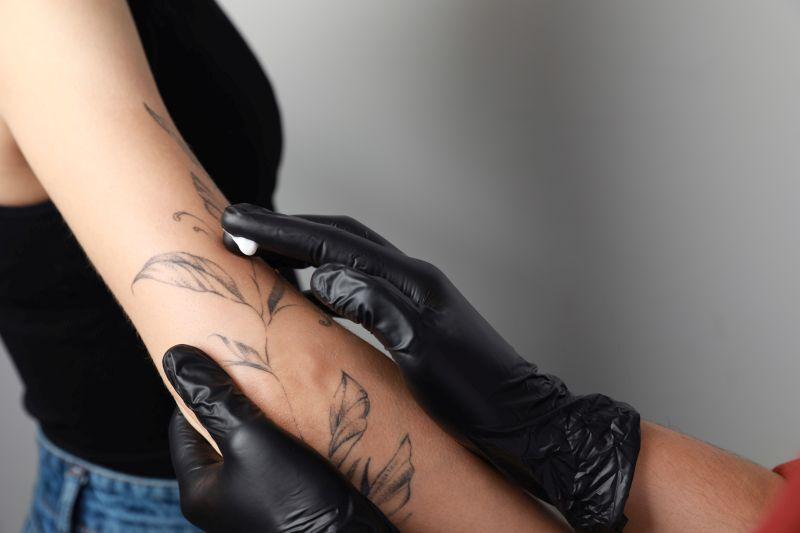This page has been automatically translated. Please refer to the page in French if needed.
Prevention of infections
Tattoos: Precautions to be taken before launching
Publié le null - Legal and Administrative Information Directorate (Prime Minister)
Are you planning on getting a tattoo? Be careful, tattooing is not an insignificant act. Service-Public.fr gives you some tips on choosing your tattoo artist and essential hygiene steps.

The first step is to know if you want to make a temporary or permanent tattoo.
The temporary tattoo does not penetrate the epidermis but is deposited on the skin. The ephemeral ink used falls into the category of cosmetic products. The pattern usually remains on the skin for a little less than a month.
The permanent tattoo is made with an indelible dye which is inserted under the skin with a needle: permanent tattooing lasts a lifetime!
FYI
permanent tattoos can be removed with an electrodermograph or laser, but a tattoo maker cannot do this. This is a medical procedure that may lead to a risk of scarring.
The choice of tattoo artist
The choice of the professional performing the act is important.
The points of care that you must be careful about before going to a tattoo parlor are the following:
- make sure that the tattoo artist has a declaration of activity issued by the Regional Health Agency (RHA);
- the tattoo must be carried out in a room reserved exclusively for this purpose, and disinfected after each client;
- it is essential for the professional to follow the rules of hygiene, check that he washes his hands well and that the gloves he uses are for single use, as is the needle. The area to be tattooed must be disinfected beforehand;
- before performing the tattoo, the tattoo artist must explain the risks you are exposed to;
- risk information must be displayed in the exhibition and sent to you in writing.
If these practices are not followed, it is recommended to find another professional.
Warning
before the session, avoid alcohol or drugs that thin the blood, such as aspirin, because they can slow healing and increase the risk of bleeding.
Temporary tattoos
Although temporary tattooing is less risky than permanent tattooing, it should not take place lightly.
Use caution when offering dark ink tattoos and avoid temporary black henna tattoos. To intensify the black henna color, para-phenylenediamine (PPD) can sometimes be used. It is a dangerous product that causes allergies and can lead to medical intervention or even hospitalization. The Directorate-General for Competition, Consumer Affairs and Fraud Prevention (DGCCRF) recalls that this ingredient is banned in cosmetic products other than hair dyes
Please note
- Feel free to ask about the composition of the inks used and make sure they do not contain para-phenylenediamine.
- If ordering on the internet, make sure that the tattoos do not contain this substance.
What to do in case of complications?
Once you have had your tattoo you should look out for any signs of side effects.
Permanent tattoos present several risks, such as:
- an infectious risk: in particular if the tattoo area has not been disinfected beforehand;
- an allergic risk: some inks used may cause reactions such as itching and swelling, or even eczema;
- before getting a tattoo, talk to your doctor, especially if you have a skin lesion, disease or medical treatment.
FYI
tattooing carries real health risks of bacterial or viral transmission (hepatitis B and C). Contamination may be from the material or ink. Always seek medical attention if you develop clinical signs (itching, eczema, inflammation or other allergic reactions) after a recent tattoo.
FYI
your child is a minor and wants to get a tattoo? Tattooists may not perform these services on children under 18 years of age without written authorization from the parents or guardians. This document must be kept for 3 years by the professional.
Additional topics
Service-Public.fr
Service-Public.fr
Ministry of Economy
Ministry of Economy
Agenda
Aide au logement
À partir du 8 juil. 2024
Publié le 24 juin 2024
Plateforme Mon Master
Du 4 juin au 31 juil. 2024
Publié le 06 juin 2024
Lycéens
À partir du 1 sept. 2024
Publié le 23 mai 2024
Collégiens
À partir du 1 sept. 2024
Publié le 22 mai 2024

